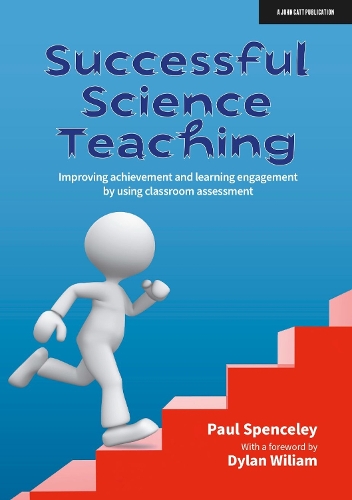
Successful Science Teaching: Improving achievement and learning engagement by using classroom assessment
(Paperback)
Publishing Details
Successful Science Teaching: Improving achievement and learning engagement by using classroom assessment
By (Author) Paul Spenceley
Hodder Education
John Catt Educational Ltd
14th January 2022
United Kingdom
Classifications
Professional and Scholarly
Non Fiction
Teaching skills and techniques
Schools and pre-schools
Teaching of a specific subject
Educational: Sciences, general science
372.35044
Physical Properties
Paperback
188
Width 146mm, Height 208mm, Spine 12mm
240g
Description
Teachers simply do not have the time to do any more work. Yet the pressure to improve results is ever-upwards. The emphasis in this book is not on doing anything extra, but on doing all the everyday things that science teachers do planning lessons, marking work and exams, providing feedback, and getting students involved in discussions, or self and peer-assessment in a slightly different way.
The book is full of simple, practical, formative assessment techniques and strategies, based on real classroom practices, repeated across the range of ages and abilities at secondary levels, in a variety of schools, that have been repeatedly shown to significantly improve examination results, and student involvement in lessons.
Whether you are just about to embark on a career as a science teacher, or you have been one for many years, there is bound to be something here.
Reviews
Paul Spenceley is one of the most gifted and passionate teachers I have ever had the privilege to work with. In particular, he has deep expertise on both the practicalities of implementing formative assessment in classrooms, and how to support teachers in developing their practice. -- Dylan Wiliam
Author Bio
Recently retired after 35 years Paul worked in both the comprehensive and grammar school systems, holding a variety of departmental appointments, but always remaining a classroom science teacher.
Between 1998 and 2002, he was one of the teachers involved in the Kings College project, which lead to Black and Wiliam publishing Working Inside The Black Box. In the years since, he has continued to develop and refine formative assessment techniques, working with a number of secondary schools, always with great success.
Paul has spoken on his work at schools and conferences across the country, always with excellent feedback. He was also recognised for his work at a reception at Buckingham Palace for those who had made a significant contribution to education in the UK.
